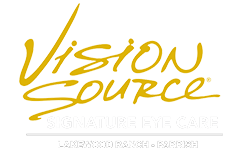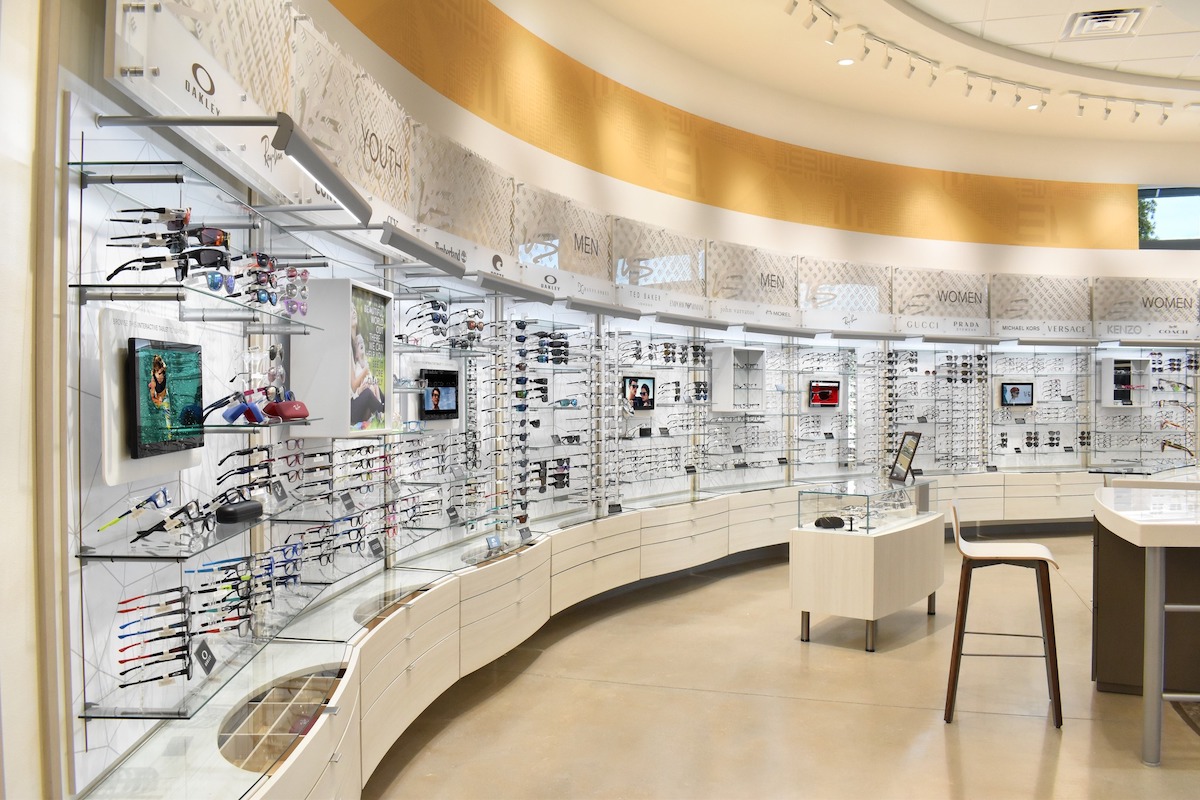 Frequently asked questions
Frequently asked questions
Answers to our most common patient questions
How much is an eye exam?
Our fee for a comprehensive eye examination is $239 – due at the time of service. This includes a computerized vision analysis to determine if you need visual correction, an eye health evaluation including dilating the eye and digital retinal imaging. Contact lens examinations range from $315.00 to $550.00, depending on the type of lenses you require and the complexity of your case. (See explanation below.) Medical office visit fees range from $65.00-$350.00 depending on your problem (See explanation below.)
What if I have insurance coverage?
Every insurance plan is unique. Some cover all of the examination and eye wear and some provide you with a discount plan. Call our insurance coordinator and we will be happy to find out the specifics of your plan. Please know that it is your responsibility to know the details of your coverage and we only ask that you supply us with important information, such as your insurance ID numbers needed to authorize you for services before your actual appointment date.
I don’t want my eyes dilated, is that okay?
“Dilating the eye” or “dilation of the eye” consists of the doctor or technician instilling special medicational eye drops to enlarge the pupil of the eye. This facilitates a view of the inside of the eye including the retina, optic nerve and blood vessels. Many eye diseases and systemic diseases are diagnosed and documented by dilating the eye. Eye conditions such as glaucoma, cataracts, macular degeneration, eye cancer and many other diseases can not be properly diagnosed and can not be visualized if the pupils are not dilated. Dilation is also critical to accurately diagnose vision problems in children and some adults.
Dilation is a part of a comprehensive eye examination and is the standard of care. It is not an optional part of the exam. Temporary blurry vision does occur after dilation and caution should be taken when driving.
Taking all of that into consideration, we recognize that there are days when you simply can not fit a dilated eye examination into your day. We first urge you to schedule your examination on a day when you have time to be dilated. Secondly, if you can not be dilated on the day of your examination, we will complete as much of the examination as possible and reschedule your dilation on a different day. There may be a charge for this additional office visit.
What is DRI or Digital Retinal Imaging?
We perform DRI or digital retinal imaging as a part of our comprehensive examination. Digital retinal imaging is a special screening test that we recommend to be performed at every comprehensive examination. This procedure consists of taking digital images of the inside of the eyeball with a state of the art digital retinal fundus camera. These are not X-rays and there are no side effects from performing the test. The images are analyzed by our doctors and reviewed with you.
This test allows us to better evaluate your retina for medical problems and allows us to keep the images as a permanent part of your record. It is additive information performed along side of dilated part of the exam. It is completely safe and allows you the opportunity to see the inside of your eye just as the doctor sees it. This is a test that is considered a screening test as a part of a comprehensive exam and not intended to replace dilation or substitute for fundus photography. Fundus photography is considered a medical test used by the doctor for documenting certain stages of eye disease and includes a report written by the doctor.
This screening test is not typically covered by vision plans or medical coverage. It is included as a part of our comprehensive exam of $239.00. However, when billing medical or vision insurance, we are forced to break the examination down into parts ($155 for the comprehensive medical exam, $50 for the refraction and $34.00 for DRI) as required by insurance companies or third party payors. As a result, if we are billing a vision plan with a $10 co-pay for the exam, you will also be responsible for $34 for the digital retinal imaging for a total of $44.00. Vision and medical plans allow us to charge up to $39.00. We feel that our fee of $34 for this high level technology is very competitive.
Should I purchase my glasses at your private practice or at a commercial optical?
It is a common myth that private practices are more expensive than commercial opticals in the mall. Many commercial optical chains use bait-n-switch sales techniques that often sound to good to be true. Many offer a 50% discount on lenses or frame. However, their price before the discount is often twice as high as ours making the customer feel like that received a good deal when in reality, our prices are often times lower than theirs without their discount! Our practice is owned by the doctor instead of a big corporation. Therefore, we are more competitive and can respond to changes in the economy quickly. Private practices also have more control and as a result, can make quality eye wear more affordable.
Good value in eye wear is receiving quality at a fair price. Our fees reflect the quality of our workmanship, yet they are generally lower than “discount” or “one-hour” stores. We also offer no-interest financing up to 12 months. In addition, we offer 50% off second pairs when purchased on the same day.
My insurance covers the examination, but not refraction. What does that mean?
Our usual and customary charge for a comprehensive examination is $239.00. When an insurance company is involved, we are forced to divide our examination charges into the comprehensive medical eye exam, $155.00, the refraction, $50.00 and the digital retinal imaging, $34.00 according to universal insurance coding standards. Many insurance companies cover the examination. However, the refraction, the part where the doctor asks you, “Which one is better, one or two,” is considered an allowable non-covered procedure in the industry as is the digital retinal imaging. As a result, if you have insurance that covers the examination with a $35 co-pay, you will be responsible for paying $35 for your copay plus $50 (refraction) and $34 (DRI), for a total of $119.00. This may differ if you have a separate vision plan as some vision plans cover the refraction. You may elect not to have the digital retinal imaging but we highly discourage it.
How much will an office visit cost if I have a medical eye problem?
Fees for medical exams for established patients start at around $80. If you are a new patient to our practice, the fee will be between $95 and $154 as we will most likely perform a comprehensive or intermediate examination depending on your problem. If diagnostic medical tests need to be ordered, additional fees may apply. Your vision plan usually will not cover medical office visits. However, your medical plan, such as Aetna, Blue Cross Blue Shield, Cigna, Medicare or United Healthcare will cover the visit as long as there is a medical reason for the visit, for example, having an eye infection, dry eyes, allergic eyes, glaucoma or cataracts. We are providers for most major medical plans.
There are many different types of medical eye exams and tests. Some commonly encountered procedures in eye care are as follows: Optical Coherence Tomography/Nerve Fiber Analysis – $65, Visual Field Testing – $125, Gonioscopy – $45, Corneal Foreign Body removal – $155, Punctal occlusion – $250-500, Corneal Topography – $35, Fundus Photography – $80, Conjunctival Cyst Drainage – $110. Lacrimal dilation and irrigation – $105.
What if I have a vision plan that covers an eye exam and medical insurance that covers eye care as well? Which plan do you bill for the examination?
Vision plans are designed to provide you with coverage for a comprehensive eye examination. However, sometimes the examination may be more medical in nature…such as a patient that needs their vision checked but also has ocular allergies, dry eye, diabetes, glaucoma, macular degeneration or other medical problems. These diagnoses usually require a higher level of examination and sometimes additional tests. In this case, your medical insurance may cover your eye exam and your vision plan will cover your glasses or contact lenses. (You will still be responsible for the refraction.) We will bill the plan of your choosing. However, if you need a higher level of medical care, we may make another appointment so that your medical issues will be addressed in greater detail.
What will it cost for me to wear contact lenses?
Contact lens professional fees are billed in addition to the comprehensive eye examination. These professional fees range from $75 to $500 depending on the complexity of the fitting. This usually includes a diagnostic pair of contact lenses to try and includes unlimited follow-up visits for 60 days. Office visits related to your contact lenses 90 days after your contact lens examination are billed at $50 per visit. If you have a corneal disease such as keratoconus, your professional fees could be higher.
What exactly are contact lens professional fees?
Depending on the type of lenses you require and the complexity of your case, fees range anywhere from $60 to $225 annually for the contact lens evaluation fee. This charge is in addition to your regular exam fee of $199. For example, if you have been wearing lenses for many years and the doctor feels it is safe for you to continue to wear your current lenses, your contact lens evaluation fee will be lower, usually around $45-70. If you have never worn contact lenses before, your fee will likely be higher, usually around $90-110. Some patients may be charged between $110-400 for more involved cases, such as patients with keratoconus, corneal transplants, corneal distortion or high astigmatism. Our doctors will determine the fee to be charged at the end of your examination.
These fees are professional contact lens evaluation fees and are not subject to negotiation. We strive to keep the costs down for our patients. However, our time, expertise and costs associated with running a modern health care facility dictate that we charge appropriately for all of our services.
Example:
Comprehensive medical eye examination: $155.00
Determination of status of vision (Refraction): $50.00
Digital Retinal Imaging $34.00
Contact lens professional evaluation: $75.00
Contact lenses: $200.00
TOTAL $514.00
What are contact lens professional fees for?
As a contact lens wearer, additional tests are done for you that are necessary to make sure your eyes are healthy, that your lenses fit properly, and to ensure that you are seeing as well as possible. Contact lens professional fees are for the extra testing, our doctor’s fitting expertise and the time taken by the staff and doctor each year to properly evaluate your contact lenses. Writing a prescription for your contact lenses places a certain amount of responsibility for the health of your eyes on the doctor. As a result, your eyes and the fit of the contact lenses needs to be checked annually.
How much do contact lenses cost?
Contact lenses vary depending on the type of lens needed to correct your vision problem. Below are some examples of what price contact lenses generally start at. What is important to note, is that although the price per box is slightly different, most disposable contact lenses are generally about the same annualized over a year’s time.
Daily Disposables: $49.95 – 129.95 per box
Biweekly Disposables: $19.95 – 34.95 per box
Monthly Disposables: $39.95 – 140.95 per box
Gas permeable lenses: $89.95 – 179.95 per lens
Keratoconus lenses: $500 – 900 per lens
Can I order my contact lenses on-line?
Yes, once the doctor finalizes your prescription you may elect to order your lenses on-line. Just let us know you are choosing that option and we will do all of the work for you! We will upload all of your prescription information to an on-line contact lens retailer called Yourlens.com. You will receive an email by the time you get home which will direct you to the web site. You may then order your lenses 24-7 from the convenience of your home or work.
How much do glasses cost?
Glasses vary depending on the frame you choose, lens material, the type of lenses you require and your prescription. Frames generally start at $99 and lenses start at $119. Price may also vary if you choose to add items such as Transition lenses or polarized lenses. Our eyewear consultants will go over options and pricing with you before you make any purchase decisions.
How much do glasses cost if I have insurance?
Every insurance plan works differently. However, most vision plans offer a certain dollar amount toward the frame and then cover basic single vision or flat-top bifocal lenses. This coverage is usually for a “naked” lens, with no special tints, coatings or thin lens materials. Lets say that you wish to wear an invisible, no-line progressive lens with an glare-free treatment to cut down reflections. This lens may normally cost you $429.00. Vision plans usually require you to pay a material co-pay of $15, for example. Also, they usually cover a basic lens and then you pay, at a discounted fee, the upgrade to a progressive lens, the glare-free treatment and your plan co-pay, i.e.: $115.00 for the progressive and $71.00 for the glare-free treatment. For this example, you would pay $201.00 ($115 + $71 + $15 co-pay.)
Do you treat eye infections?
Absolutely! We treat eye problems such as infections as a priority and will try to get you in as soon as possible. Our doctors also treat other eye problems such as allergies, trauma, inflammations, glaucoma, dry eyes and a host of other medical eye problems.
I have a vision plan and a medical plan, which one do you bill for my visit?
Vision plans are designed to provide you with coverage for a comprehensive eye examination. However, sometimes the examination may be more medical in nature…such as a patient that needs their vision checked but also has ocular allergies, dry eye, diabetes, glaucoma, macular degeneration or other medical problems. These diagnoses usually require a higher level of examination and sometimes additional tests. In this case, your medical insurance may cover your eye exam and your vision plan will cover your glasses or contact lenses. (You will still be responsible for the refraction.) We will bill the plan of your choosing. However, if you need a higher level of medical care, we may make another appointment so that your medical issues will be addressed in greater detail.
Does your office see children?
Absolutely! Children are a large part of our practice. For a medical eye problem, we will see infants and children from just a few months old. For routine vision examinations, we will see children at age 4 and up. We co-manage patients with conditions outside our scope of practice with local pediatric eye surgeons.
My deductible is not met, will I be responsible for all of the charges on the day of my examination?
Yes. Payment is due when services are rendered. Your insurance will be filed immediately electronically. After we receive a copy of the explanation of benefits from your insurance company we will refund any monies back to you if there were any differences as to what your actual benefits were.
Do I need to see an optometrist or ophthalmologist?
Our doctors are optometrists and are not only experts in refraction and vision problems but are also board certified to diagnose and treat eye disease and prescribe medications for the eye, including for the treatment of glaucoma. They specialize in removing embedded foreign bodies from the eye, diagnosing and treating red eye problems, dry eye syndrome, infections, injuries, allergies and all forms of medical eye problems. They also specialize in children’s vision care which included diagnosis and management of binocular vision disorders, such as strabismus (eye turn or crossing) and amblyopia (lazy eye.) Furthermore, our doctors diagnose and manage diabetic eye disease, cataracts, macular degeneration and retinal detachments. Our doctors also perform pre-operative and post-operative care for our patients who desire laser vision correction and cataract surgery. Ophthalmologists are surgical eye specialists, so most of their training and concentration in practice is on surgical techniques. Optometrists co-manage surgical cases with ophthalmologists, and we will refer you to one if surgery is indicated.
If any other questions arise, please feel free to call us anytime!



